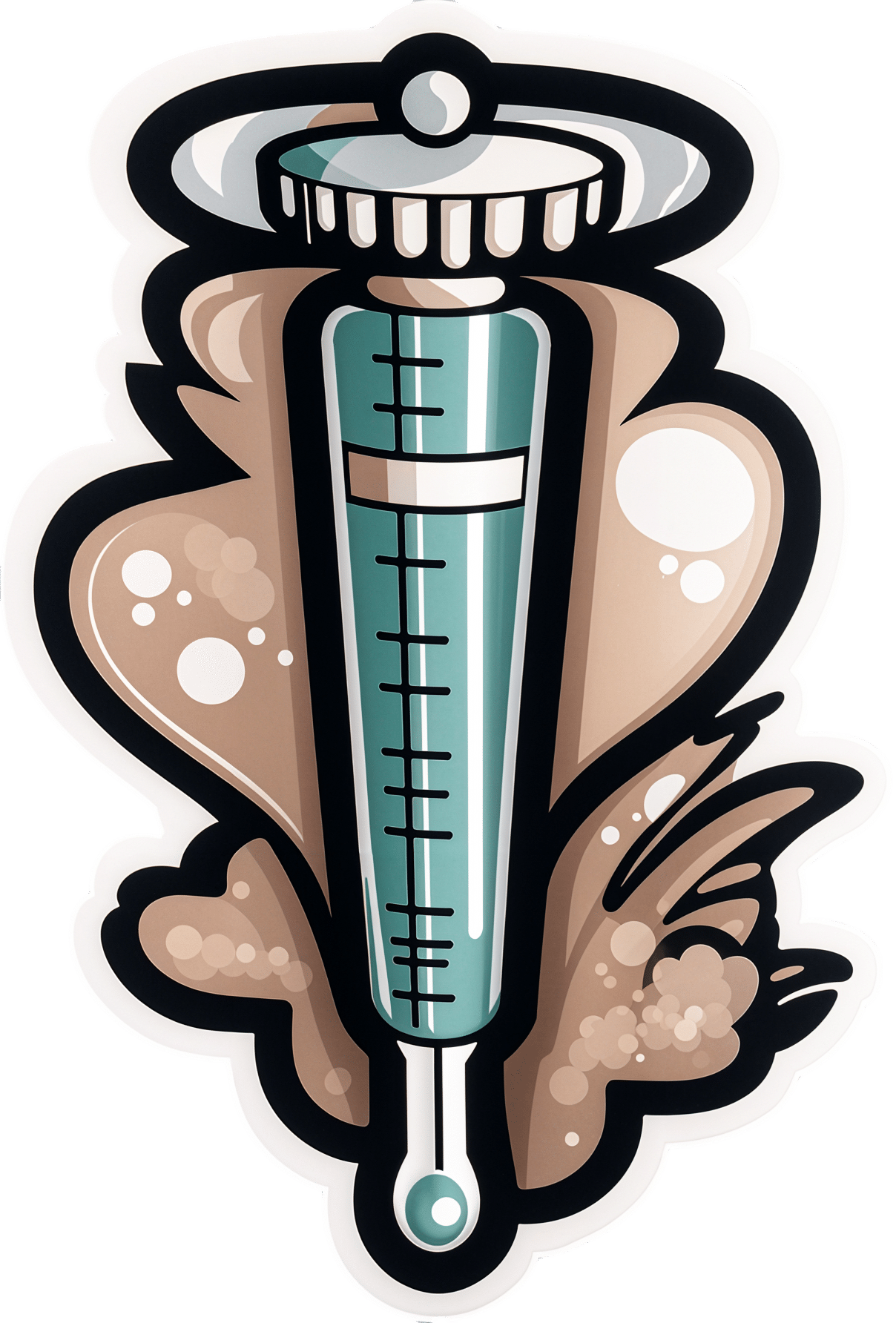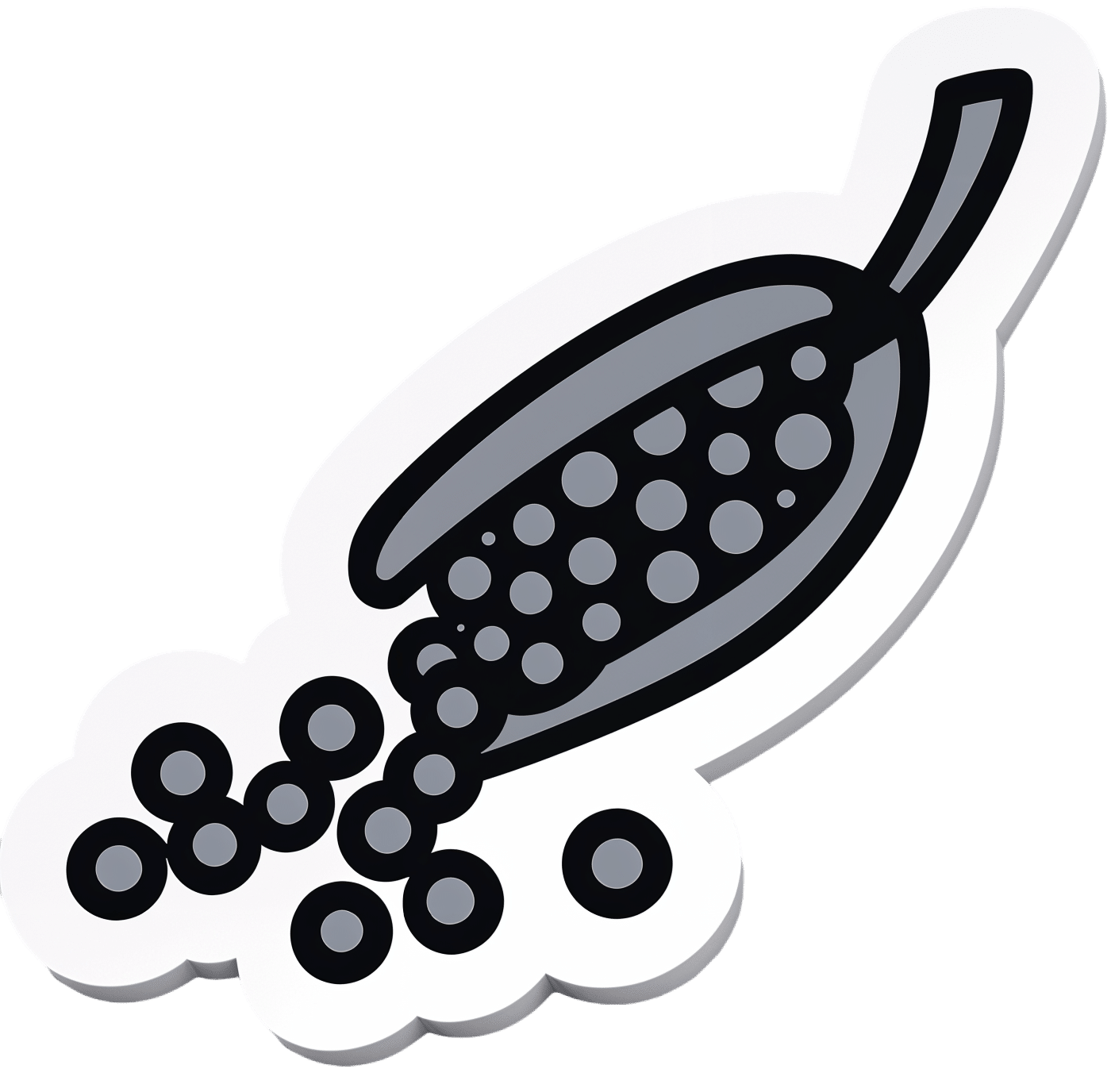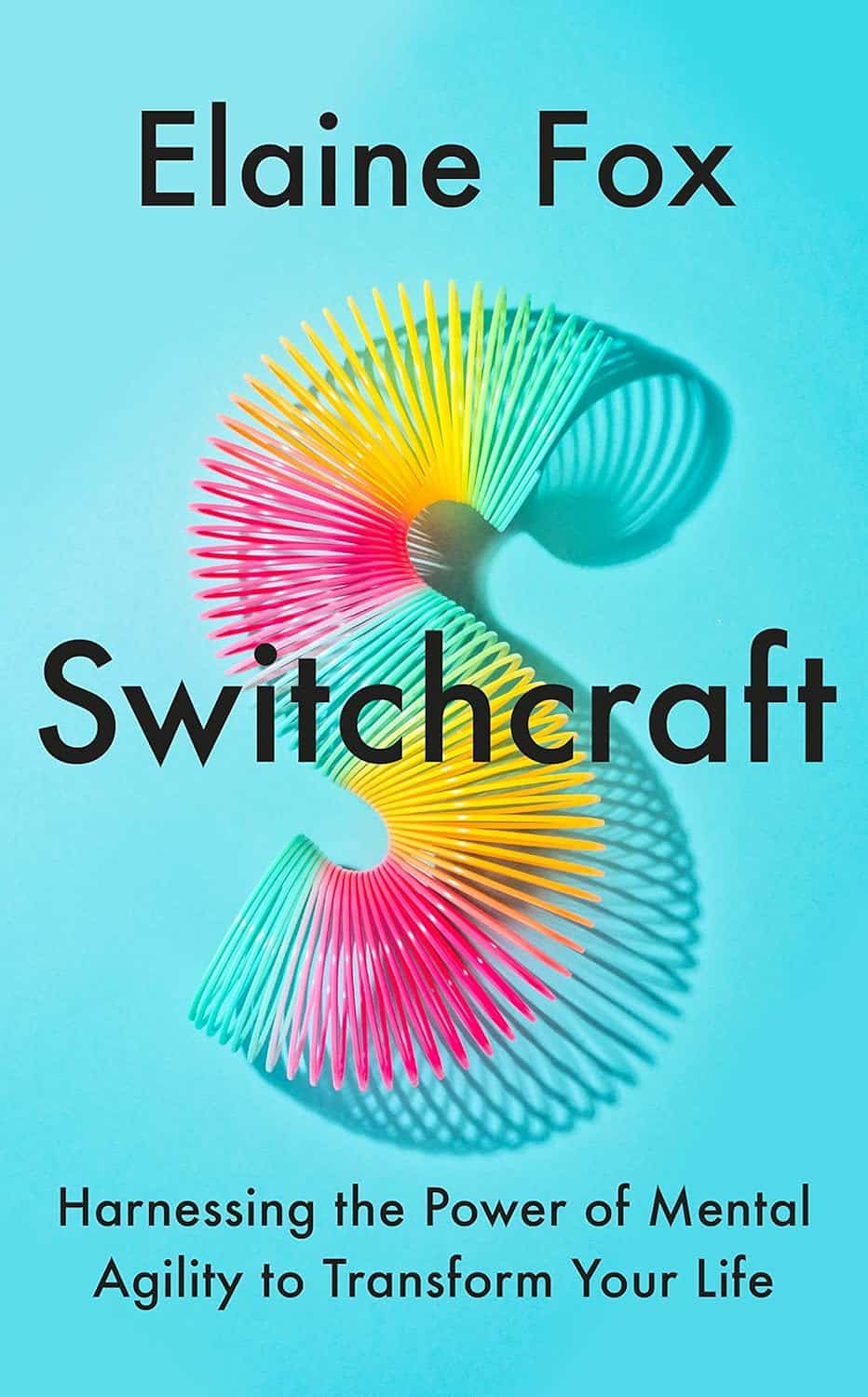
The Path to Longevity – by Dr. Luigi Fontana
10almonds is reader-supported. We may, at no cost to you, receive a portion of sales if you purchase a product through a link in this article.
We’ve reviewed other “expand your healthspan” books, and while they’re good (or else we wouldn’t include them), this is top-tier, up there with Dr. Greger’s books while being more accessible (more on this later).
This book is far more informational than opinionated, and while some reviewers have described the book as motivating them, that’s not at all the tone, and it’s clear that (beyond hoping for the reader to have to information to promote a long healthy life), the author has no particular agenda to push.
One example: while he gives a whole-foods, plant-based diet a “A+” rating, he puts the (often meat/fish-heavy) paleo diet at a close “A-“, depending on the animal products chosen (which can swing it a lot, and he discusses this in some detail).
In the category of criticism… This reviewer has none. Sometimes it seemed something was going unaddressed, but it would be addressed later.
Stylistically, the text is easy-reading and/but has a lot of references to hard science, complete with charts, diagrams, and so forth. The impression that this reviewer got is that Dr. Fontana took pains to convey as much science as possible, with (unlike Dr. Greger) as little jargon as possible. And that goes a long way.
Bottom line: if you’re looking for a “healthy aging” book that has a lot more science than “copy the Blue Zone supercentenarians and hope” without being so scientifically dense as “How Not To Die” or “How Not To Age“, then this is the book for you.
Click here to check out The Path to Longevity, and optimize the path you take!
Don’t Forget…
Did you arrive here from our newsletter? Don’t forget to return to the email to continue learning!
Recommended
Learn to Age Gracefully
Join the 98k+ American women taking control of their health & aging with our 100% free (and fun!) daily emails:

4 Ways Vaccine Skeptics Mislead You on Measles and More
10almonds is reader-supported. We may, at no cost to you, receive a portion of sales if you purchase a product through a link in this article.
Measles is on the rise in the United States. In the first quarter of this year, the number of cases was about 17 times what it was, on average, during the same period in each of the four years before, according to the Centers for Disease Control and Prevention. Half of the people infected — mainly children — have been hospitalized.
It’s going to get worse, largely because a growing number of parents are deciding not to get their children vaccinated against measles as well as diseases like polio and pertussis. Unvaccinated people, or those whose immunization status is unknown, account for 80% of the measles cases this year. Many parents have been influenced by a flood of misinformation spouted by politicians, podcast hosts, and influential figures on television and social media. These personalities repeat decades-old notions that erode confidence in the established science backing routine childhood vaccines. KFF Health News examined the rhetoric and explains why it’s misguided:
The No-Big-Deal Trope
A common distortion is that vaccines aren’t necessary because the diseases they prevent are not very dangerous, or too rare to be of concern. Cynics accuse public health officials and the media of fear-mongering about measles even as 19 states report cases.
For example, an article posted on the website of the National Vaccine Information Center — a regular source of vaccine misinformation — argued that a resurgence in concern about the disease “is ‘sky is falling’ hype.” It went on to call measles, mumps, chicken pox, and influenza “politically incorrect to get.”
Measles kills roughly 2 of every 1,000 children infected, according to the CDC. If that seems like a bearable risk, it’s worth pointing out that a far larger portion of children with measles will require hospitalization for pneumonia and other serious complications. For every 10 measles cases, one child with the disease develops an ear infection that can lead to permanent hearing loss. Another strange effect is that the measles virus can destroy a person’s existing immunity, meaning they’ll have a harder time recovering from influenza and other common ailments.
Measles vaccines have averted the deaths of about 94 million people, mainly children, over the past 50 years, according to an April analysis led by the World Health Organization. Together with immunizations against polio and other diseases, vaccines have saved an estimated 154 million lives globally.
Some skeptics argue that vaccine-preventable diseases are no longer a threat because they’ve become relatively rare in the U.S. (True — due to vaccination.) This reasoning led Florida’s surgeon general, Joseph Ladapo, to tell parents that they could send their unvaccinated children to school amid a measles outbreak in February. “You look at the headlines and you’d think the sky was falling,” Ladapo said on a News Nation newscast. “There’s a lot of immunity.”
As this lax attitude persuades parents to decline vaccination, the protective group immunity will drop, and outbreaks will grow larger and faster. A rapid measles outbreak hit an undervaccinated population in Samoa in 2019, killing 83 people within four months. A chronic lack of measles vaccination in the Democratic Republic of the Congo led to more than 5,600 people dying from the disease in massive outbreaks last year.
The ‘You Never Know’ Trope
Since the earliest days of vaccines, a contingent of the public has considered them bad because they’re unnatural, as compared with nature’s bounty of infections and plagues. “Bad” has been redefined over the decades. In the 1800s, vaccine skeptics claimed that smallpox vaccines caused people to sprout horns and behave like beasts. More recently, they blame vaccines for ailments ranging from attention-deficit/hyperactivity disorder to autism to immune system disruption. Studies don’t back the assertions. However, skeptics argue that their claims remain valid because vaccines haven’t been adequately tested.
In fact, vaccines are among the most studied medical interventions. Over the past century, massive studies and clinical trials have tested vaccines during their development and after their widespread use. More than 12,000 people took part in clinical trials of the most recent vaccine approved to prevent measles, mumps, and rubella. Such large numbers allow researchers to detect rare risks, which are a major concern because vaccines are given to millions of healthy people.
To assess long-term risks, researchers sift through reams of data for signals of harm. For example, a Danish group analyzed a database of more than 657,000 children and found that those who had been vaccinated against measles as babies were no more likely to later be diagnosed with autism than those who were not vaccinated. In another study, researchers analyzed records from 805,000 children born from 1990 through 2001 and found no evidence to back a concern that multiple vaccinations might impair children’s immune systems.
Nonetheless, people who push vaccine misinformation, like candidate Robert F. Kennedy Jr., dismiss massive, scientifically vetted studies. For example, Kennedy argues that clinical trials of new vaccines are unreliable because vaccinated kids aren’t compared with a placebo group that gets saline solution or another substance with no effect. Instead, many modern trials compare updated vaccines with older ones. That’s because it’s unethical to endanger children by giving them a sham vaccine when the protective effect of immunization is known. In a 1950s clinical trial of polio vaccines, 16 children in the placebo group died of polio and 34 were paralyzed, said Paul Offit, director of the Vaccine Education Center at Children’s Hospital of Philadelphia and author of a book on the first polio vaccine.
The Too-Much-Too-Soon Trope
Several bestselling vaccine books on Amazon promote the risky idea that parents should skip or delay their children’s vaccines. “All vaccines on the CDC’s schedule may not be right for all children at all times,” writes Paul Thomas in his bestselling book “The Vaccine-Friendly Plan.” He backs up this conviction by saying that children who have followed “my protocol are among the healthiest in the world.”
Since the book was published, Thomas’ medical license was temporarily suspended in Oregon and Washington. The Oregon Medical Board documented how Thomas persuaded parents to skip vaccines recommended by the CDC, and reported that he “reduced to tears” a mother who disagreed. Several children in his care came down with pertussis and rotavirus, diseases easily prevented by vaccines, wrote the board. Thomas recommended fish oil supplements and homeopathy to an unvaccinated child with a deep scalp laceration, rather than an emergency tetanus vaccine. The boy developed severe tetanus, landing in the hospital for nearly two months, where he required intubation, a tracheotomy, and a feeding tube to survive.
The vaccination schedule recommended by the CDC has been tailored to protect children at their most vulnerable points in life and minimize side effects. The combination measles, mumps, and rubella vaccine isn’t given for the first year of a baby’s life because antibodies temporarily passed on from their mother can interfere with the immune response. And because some babies don’t generate a strong response to that first dose, the CDC recommends a second one around the time a child enters kindergarten because measles and other viruses spread rapidly in group settings.
Delaying MMR doses much longer may be unwise because data suggests that children vaccinated at 10 or older have a higher chance of adverse reactions, such as a seizure or fatigue.
Around a dozen other vaccines have discrete timelines, with overlapping windows for the best response. Studies have shown that MMR vaccines may be given safely and effectively in combination with other vaccines.
’They Don’t Want You to Know’ Trope
Kennedy compares the Florida surgeon general to Galileo in the introduction to Ladapo’s new book on transcending fear in public health. Just as the Roman Catholic inquisition punished the renowned astronomer for promoting theories about the universe, Kennedy suggests that scientific institutions oppress dissenting voices on vaccines for nefarious reasons.
“The persecution of scientists and doctors who dare to challenge contemporary orthodoxies is not a new phenomenon,” Kennedy writes. His running mate, lawyer Nicole Shanahan, has campaigned on the idea that conversations about vaccine harms are censored and the CDC and other federal agencies hide data due to corporate influence.
Claims like “they don’t want you to know” aren’t new among the anti-vaccine set, even though the movement has long had an outsize voice. The most listened-to podcast in the U.S., “The Joe Rogan Experience,” regularly features guests who cast doubt on scientific consensus. Last year on the show, Kennedy repeated the debunked claim that vaccines cause autism.
Far from ignoring that concern, epidemiologists have taken it seriously. They have conducted more than a dozen studies searching for a link between vaccines and autism, and repeatedly found none. “We have conclusively disproven the theory that vaccines are connected to autism,” said Gideon Meyerowitz-Katz, an epidemiologist at the University of Wollongong in Australia. “So, the public health establishment tends to shut those conversations down quickly.”
Federal agencies are transparent about seizures, arm pain, and other reactions that vaccines can cause. And the government has a program to compensate individuals whose injuries are scientifically determined to result from them. Around 1 to 3.5 out of every million doses of the measles, mumps, and rubella vaccine can cause a life-threatening allergic reaction; a person’s lifetime risk of death by lightning is estimated to be as much as four times as high.
“The most convincing thing I can say is that my daughter has all her vaccines and that every pediatrician and public health person I know has vaccinated their kids,” Meyerowitz-Katz said. “No one would do that if they thought there were serious risks.”
KFF Health News is a national newsroom that produces in-depth journalism about health issues and is one of the core operating programs at KFF—an independent source of health policy research, polling, and journalism. Learn more about KFF.
Subscribe to KFF Health News’ free Morning Briefing.
Share This Post

Hair-Loss Remedies, By Science
10almonds is reader-supported. We may, at no cost to you, receive a portion of sales if you purchase a product through a link in this article.
10almonds Gets Hairy
Hair loss is a thing that at some point affects most men and a large minority of women. It can be a source of considerable dysphoria for both, as it’s often seen as a loss of virility/femininity respectively, and is societally stigmatized in various ways.
Today we’re going to focus on the most common kind: androgenic alopecia, which is called “male pattern baldness” in men and “female pattern baldness” in women, despite being the same thing.
We won’t spend a lot of time on the science of why this happens (we’re going to focus on the remedies instead), but suffice it to say that genes and hormones both play a role, with dihydrogen testosterone (DHT) being the primary villain in this case.
We’ve talked before about the science of 5α-reductase inhibitors to block the conversion of regular testosterone* to DHT, its more potent form:
One Man’s Saw Palmetto Is Another Woman’s Serenoa Repens…
*We all make this to a greater or lesser degree, unless we have had our ovaries/testes removed.
Finasteride
Finasteride is a 5α-reductase inhibitor that performs similarly to saw palmetto, but comes in tiny pills instead of needing to take a much higher dose of supplement (5mg of finasteride is comparable in efficacy to a little over 300mg of saw palmetto).
Does it work? Yes!
Any drawbacks? A few:
- It’ll take 3–6 months to start seeing effects. This is because of the hormonal life-cycle of human hairs.
- Common side-effects include ED.
- It is popularly labelled/prescribed as “only for men”
On that latter point: the warnings about this are severe, detailing how women must not take it, must not even touch it if it has been cut up or crushed.
However… That’s because it can carry a big risk to our unborn fetuses. So, if we are confident we definitely don’t have one of those, it’s not actually applicable to us.
That said, finasteride’s results in women aren’t nearly so clear-cut as in men (though also, there has been less research, largely because of the above). Here’s an interesting breakdown in more words than we have room for here:
Finasteride for Women: Everything You Need to Know
Spironolactone
This one’s generally prescribed to women, not men, largely because it’s the drug sometimes popularly known as a “chemical castration” drug, which isn’t typically great marketing for men (although it can be applied topically, which will have less of an effect on the rest of the body). For women, this risk is simply not an issue.
We’ll be brief on this one, but we’ll just drop this, so that you know it’s an option that works:
❝Spironolactone is an effective and safe treatment of androgenic alopecia which can enhance the efficacy when combined with other conventional treatments such as minoxidil.
Topical spironolactone is safer than oral administration and is suitable for both male and female patients, and is expected to become a common drug for those who do not have a good response to minoxidil❞
Minoxidil
This one is available (to men and women) without prescription. It’s applied topically, and works by shortcutting the hair’s hormonal growth cycle, to reduce the resting phase and kick it into a growth phase.
Does it work? Yes!
Any drawbacks? A few:
- Whereas you’ll remember finasteride takes 3–6 months to see any effect, this one will have an effect very quickly
- Specifically, the immediate effect is: your rate of hair loss will appear to dramatically speed up
- This happens because when hairs are kicked into their growth phase if they were in a resting phase, the first part of that growth phase is to shed each old hair to make room for the new one
- You’ll then need the same 3–6 months as with finasteride, to see the regrowth effects
- If you stop using it, you will immediately shed whatever hair you gained by this method
Why do people choose this over finasteride? For one of three reasons, mainly:
- They are women, and not offered finasteride
- They are men, and do not want the side effects of finasteride
- They just saw an ad and tried it
As to how it works:
Some final notes:
There are some other contraindications and warnings with each of these drugs by the way, so do speak with your doctor/pharmacist. For example:
- Finasteride can tax the liver a little
- Spironolactone can reduce bone turnover
- Minoxidil is a hypotensive; this shouldn’t be an issue for most people, but for some people it could be a problem
There are other hair loss remedies and practices, but the above three are the heavy-hitters, so that’s what we spent our time/space on today. We’ll perhaps cover the less powerful (but less risky) options one of these days.
Meanwhile, take care!
Share This Post

Black Pepper’s Impressive Anti-Cancer Arsenal
10almonds is reader-supported. We may, at no cost to you, receive a portion of sales if you purchase a product through a link in this article.
Black Pepper’s Impressive Anti-Cancer Arsenal (And More)
Piperine, a compound found in Piper nigrum (black pepper, to its friends), has many health benefits. It’s included as a minor ingredient in some other supplements, because it boosts bioavailability. In its form as a kitchen spice, it’s definitely a superfood.
What does it do?
First, three things that generally go together:
These things often go together for the simple reason that oxidative stress, inflammation, and cancer often go together. In each case, it’s a matter of cellular wear-and-tear, and what can mitigate that.
For what it’s worth, there’s generally a fourth pillar: anti-aging. This is again for the same reason. That said, black pepper hasn’t (so far as we could find) been studied specifically for its anti-aging properties, so we can’t cite that here as an evidence-based claim.
Nevertheless, it’s a reasonable inference that something that fights oxidation, inflammation, and cancer, will often also slow aging.
Special note on the anti-cancer properties
We noticed two very interesting things while researching piperine’s anti-cancer properties. It’s not just that it reduces cancer risk and slows tumor growth in extant cancers (as we might expect from the above-discussed properties). Let’s spotlight some studies:
It is selectively cytotoxic (that’s a good thing)
Piperine was found to be selectively cytotoxic to cancerous cells, while not being cytotoxic to non-cancerous cells. To this end, it’s a very promising cancer-sniper:
Piperine as a Potential Anti-cancer Agent: A Review on Preclinical Studies
It can reverse multi-drug resistance in cancer cells
P-glycoprotein, found in our body, is a drug-transporter that is known for “washing out” chemotherapeutic drugs from cancer cells. To date, no drug has been approved to inhibit P-glycoprotein, but piperine has been found to do the job:
Targeting P-glycoprotein: Investigation of piperine analogs for overcoming drug resistance in cancer
What’s this about piperine analogs, though? Basically the researchers found a way to “tweak” piperine to make it even more effective. They called this tweaked version “Pip1”, because calling it by its chemical name,
((2E,4E)-5-(benzo[d][1,3]dioxol-5-yl)-1-(6,7-dimethoxy-3,4-dihydroisoquinolin-2(1 H)-yl)penta-2,4-dien-1-one)
…got a bit unwieldy.
The upshot is: Pip1 is better, but piperine itself is also good.
Other benefits
Piperine does have other benefits too, but the above is what we were most excited to talk about today. Its other benefits include:
- Neuroprotective effects (against Alzheimer’s, Parkinson’s, and more)
- Blood-sugar balancing / antidiabetic effect
- Good for gut microbiome diversity
- Heart health benefits, including cholesterol-balancing
- Boosts bioavailability of other nutrients/drugs
Enjoy!
Share This Post
Related Posts

What is pathological demand avoidance – and how is it different to ‘acting out’?
10almonds is reader-supported. We may, at no cost to you, receive a portion of sales if you purchase a product through a link in this article.
“Charlie” is an eight-year-old child with autism. Her parents are worried because she often responds to requests with insults, aggression and refusal. Simple demands, such as being asked to get dressed, can trigger an intense need to control the situation, fights and meltdowns.
Charlie’s parents find themselves in a constant cycle of conflict, trying to manage her and their own reactions, often unsuccessfully. Their attempts to provide structure and consequences are met with more resistance.
What’s going on? What makes Charlie’s behaviour – that some are calling “pathological demand avoidance” – different to the defiance most children show their parents or carers from time-to-time?
What is pathological demand avoidance?
British developmental psychologist Elizabeth Newson coined the term “pathological demand avoidance” (commonly shortened to PDA) in the 1980s after studying groups of children in her practice.
A 2021 systematic review noted features of PDA include resistance to everyday requests and strong emotional and behavioural reactions.
Children with PDA might show obsessive behaviour, struggle with persistence, and seek to control situations. They may struggle with attention and impulsivity, alongside motor and coordination difficulties, language delay and a tendency to retreat into role play or fantasy worlds.
PDA is also known as “extreme demand avoidance” and is often described as a subtype of autism. Some people prefer the term persistent drive for autonomy or pervasive drive for autonomy.
What does the evidence say?
Every clinician working with children and families recognises the behavioural profile described by PDA. The challenging question is why these behaviours emerge.
PDA is not currently listed in the two diagnostic manuals used in psychiatry and psychology to diagnose mental health and developmental conditions, the current Diagnostic and Statistical Manual of Mental Disorders (DSM-5) and the World Health Organization’s International Classification of Diseases (ICD-11).
Researchers have reported concerns about the science behind PDA. There are no clear theories or explanations of why or how the profile of symptoms develop, and little inclusion of children or adults with lived experience of PDA symptoms in the studies. Environmental, family or other contextual factors that may contribute to behaviour have not been systematically studied.
A major limitation of existing PDA research and case studies is a lack of consideration of overlapping symptoms with other conditions, such as autism, attention deficit hyperactivity disorder (ADHD), oppositional defiant disorder, anxiety disorder, selective mutism and other developmental disorders. Diagnostic labels can have positive and negative consequences and so need to be thoroughly investigated before they are used in practice.
Classifying a “new” condition requires consistency across seven clinical and research aspects: epidemiological data, long-term patient follow-up, family inheritance, laboratory findings, exclusion from other conditions, response to treatment, and distinct predictors of outcome. At this stage, these domains have not been established for PDA. It is not clear whether PDA is different from other formal diagnoses or developmental differences.

When a child is stressed, demands or requests might tip them into fight, flight or freeze mode. Shutterstock Finding the why
Debates over classification don’t relieve distress for a child or those close to them. If a child is “intentionally” engaged in antisocial behaviour, the question is then “why?”
Beneath the behaviour is almost always developmental difference, genuine distress and difficulty coping. A broad and deep understanding of developmental processes is required.
Interestingly, while girls are “under-represented” in autism research, they are equally represented in studies characterising PDA. But if a child’s behaviour is only understood through a “pathologising” or diagnostic lens, there is a risk their agency may be reduced. Underlying experiences of distress, sensory overload, social confusion and feelings of isolation may be missed.
So, what can be done to help?
There are no empirical studies to date regarding PDA treatment strategies or their effectiveness. Clinical advice and case studies suggest strategies that may help include:
- reducing demands
- giving multiple options
- minimising expectations to avoid triggering avoidance
- engaging with interests to support regulation.
Early intervention in the preschool and primary years benefits children with complex developmental differences. Clinical care that involves a range of medical and allied health clinicians and considers the whole person is needed to ensure children and families get the support they need.
It is important to recognise these children often feel as frustrated and helpless as their caregivers. Both find themselves stuck in a repetitive cycle of distress, frustration and lack of progress. A personalised approach can take into account the child’s unique social, sensory and cognitive sensitivities.
In the preschool and early primary years, children have limited ability to manage their impulses or learn techniques for managing their emotions, relationships or environments. Careful watching for potential triggers and then working on timetables and routines, sleep, environments, tasks, and relationships can help.
As children move into later primary school and adolescence, they are more likely to want to influence others and be able to have more self control. As their autonomy and ability to collaborate increases, the problematic behaviours tend to reduce.
Strategies that build self-determination are crucial. They include opportunities for developing confidence, communication and more options to choose from when facing challenges. This therapeutic work with children and families takes time and needs to be revisited at different developmental stages. Support to engage in school and community activities is also needed. Each small step brings more capacity and more effective ways for a child to understand and manage themselves and their worlds.
What about Charlie?
The current scope to explain and manage PDA is limited. Future research must include the voices and views of children and adults with PDA symptoms.
Such emotional and behavioural difficulties are distressing and difficult for children and families. They need compassion and practical help.
For a child like Charlie, this could look like a series of sessions where she and her parents meet with clinicians to explore Charlie’s perspective, experiences and triggers. The family might come to understand that, in addition to autism, Charlie has complex developmental strengths and challenges, anxiety, and some difficulties with adjustment related to stress at home and school. This means Charlie experiences a fight, flight, freeze response that looks like aggression, avoidance or shutting down.
With carefully planned supports at home and school, Charlie’s options can broaden and her distress and avoidance can soften. Outside the clinic room, Charlie and her family can be supported to join an inclusive local community sporting or creative activity. Gradually she can spend more time engaged at home, school and in the community.
Nicole Rinehart, Professor, Child and Adolescent Psychology, Director, Krongold Clinic (Research), Monash University; David Moseley, Senior Research Fellow, Deputy Director (Clinical), Monash Krongold Clinic, Monash University, and Michael Gordon, Associate Professor, Psychiatry, Monash University
This article is republished from The Conversation under a Creative Commons license. Read the original article.
Don’t Forget…
Did you arrive here from our newsletter? Don’t forget to return to the email to continue learning!
Learn to Age Gracefully
Join the 98k+ American women taking control of their health & aging with our 100% free (and fun!) daily emails:

Switchcraft – by Dr. Elaine Fox
10almonds is reader-supported. We may, at no cost to you, receive a portion of sales if you purchase a product through a link in this article.
How do we successfully balance “a mind is like a parachute: it only works if it’s open”, with the importance of also actually having some kind of personal integrity and consistency?
Dr. Fox recommends that we focus on four key attributes:
- Mental agility
- Self-awareness
- Emotional awareness
- Situational awareness
If this sounds a little wishy-washy, it isn’t—she delineates and explains each in detail. And most importantly: how we can build and train each one.
Mental agility, for example, is not about being able to rapidly solve chess problems or “answer these riddles three”. It’s more about:
- Adaptability
- Balancing our life
- Challenging (and if appropriate, changing) our perspective
- Developing our mental competence
This sort of thing is the “meat” of the book. Meanwhile, self-awareness is more a foundational conscious knowledge of one’s own “pole star” values, while emotional awareness is a matter of identifying and understanding and accepting what we feel—anything less is self-sabotage! And situational awareness is perhaps most interesting:
Dr. Fox advocates for “trusting one’s gut feelings”. With a big caveat, though!
If we trust our gut feelings without developing their accuracy, we’re just going to go about being blindly prejudiced and often wrong. So, a whole section of the book is devoted to honing this and improving our ability to judge things as they really are—rather than as we expect.
Bottom line: this book is a great tool for not only challenging our preconceptions about how we think, but giving us the resources to be adaptable and resilient without sacrificing integrity.
Click here to check out Switchcraft on Amazon and level up your thinking!
Don’t Forget…
Did you arrive here from our newsletter? Don’t forget to return to the email to continue learning!
Learn to Age Gracefully
Join the 98k+ American women taking control of their health & aging with our 100% free (and fun!) daily emails:

Twenty-One, No Wait, Twenty Tweaks For Better Health
10almonds is reader-supported. We may, at no cost to you, receive a portion of sales if you purchase a product through a link in this article.
Dr. Greger’s 21 Tweaks… We say 20, though!
We’ve talked before about Dr. Greger’s Daily Dozen (12 things he advises that we make sure to eat each day, to enjoy healthy longevity), but much less-talked-about are his “21 Tweaks”…
They are, in short, a collection of little adjustments one can make for better health. Some of them are also nutritional, but many are more like lifestyle tweaks. Let’s do a rundown:
At each meal:
- Preload with water
- Preload with “negative calorie” foods (especially: greens)
- Incorporate vinegar (1-2 tbsp in a glass of water will slow your blood sugar increase)
- Enjoy undistracted meals
- Follow the 20-minute rule (enjoy your meal over the course of at least 20 minutes)
Get your daily doses:
- Black cumin ¼ tsp
- Garlic powder ¼ tsp
- Ground ginger (1 tsp) or cayenne pepper (½ tsp)
- Nutritional yeast (2 tsp)
- Cumin (½ tsp)
- Green tea (3 cups)
Every day:
- Stay hydrated
- Deflour your diet
- Front-load your calories (this means implementing the “king, prince, pauper” rule—try to make your breakfast the largest meal of your day, followed my a medium lunch, and a small evening meal)
- Time-restrict your eating (eat your meals within, for example, an 8-hour window, and fast the rest of the time)
- Optimize exercise timing (before breakfast is best for most people, unless you are diabetic)
- Weigh yourself twice a day (doing this when you get up and when you go to bed results in much better long-term weight management than weighing only once per day)
- Complete your implementation intentions (this sounds a little wishy-washy, but it’s about building a set of “if this, then that” principles, and then living by them. An example could be directly physical health-related such as “if there is a choice of stairs or elevator, I will take the stairs”, or could be more about holistic good-living, such as “if someone asks me for help, I will try to oblige them so far as I reasonably can”)
Every night:
- Fast after 7pm
- Get sufficient sleep (7–9 hours is best. As we get older, we tend more towards the lower end of that, but try get at least those 7 hours!)
Experiment with Mild Trendelenburg(better yet, skip this one)*
*This involves a 6º elevation of the bed, at the foot end. Dr. Greger advises that this should only be undertaken after consulting your doctor, though, as a lot of health conditions can contraindicate it. We at 10almonds couldn’t find any evidence to support this practice, and numerous warnings against it, so we’re going to go ahead and say we think this one’s skippable.
Again, we do try to bring you the best evidence-based stuff here at 10almonds, and we’re not going to recommend something just because of who suggested it
As for the rest, you don’t have to do them all! And you may have noticed there was a little overlap in some of them. But, we consider them a fine menu of healthy life hacks from which to pick and choose!
Don’t Forget…
Did you arrive here from our newsletter? Don’t forget to return to the email to continue learning!
Learn to Age Gracefully
Join the 98k+ American women taking control of their health & aging with our 100% free (and fun!) daily emails:








